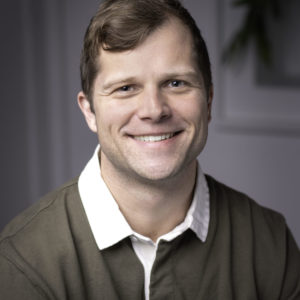A year ago, I moved to Jackson, Wyoming. I hadn’t been on the slopes in years, but I was incredibly excited to take up an old hobby: snowboarding.
After a few days, I thought I had gotten the hang of things. I had a few bad habits, and I had a lot of trouble with moguls and riding through trees. Stubbornly, I pushed through, convinced that a few YouTube videos would be enough to solve my problems.
They weren’t.
Finally, I gave in and took a lesson. My group was small — it was only two riders and an instructor. It was transformational. Within 10 minutes, my bad habits were gone. WIthin two hours, I was comfortable riding through the trees. We spent the day hunting for powder stashes, riding through trees, and exploring parts of the mountain I had no idea even existed.
I don’t remember my instructor’s name — though I do remember that he claims that he goes down Jackson’s gnarly Tower Three while riding switch — but that snowboarding lesson changed how I ride, and when I think back on it, it’s mind-boggling how long it took me to give in and ask for help.
And even though we all know continuous learning is important for our careers, accepting that we need to learn new skills as an adult — or asking for help learning those skills — can be incredibly difficult. Why is that? On this episode of Margins, we tackle all that, and a whole lot more.
Add us to your podcast feed and listen in!
Want to Learn? Get Over Yourself!
Ginny Engholm is director of editorial operations at Rep Cap and a contributor to Managing Editor. Before entering the world of marketing, Ginny was an English professor, and we turned to her to figure out why it can be so difficult to learn new skills as an adult.
She says our difficulties with learning new skills as an adult really have more to do with our comfort zone than anything else. As we grow up, the world becomes more familiar to us. It becomes easier to run on autopilot throughout our day — knocking off items on the to-do list, running through our routine and taking care of chores that we simply have no choice about.
For children, the world is very different. A single day can be filled with a variety of new experiences. “An infant or a toddler is literally learning to navigate everything in their world every second,” Ginny says.
“I think there is something in our nature that is hardwired to facilitate learning.”
What Eric Dexter Learned from Tom Hanks
Eric Dexter is director of business development at Civil Solutions Consulting Group. He doesn’t limit his continuing education to taking “sales” classes, though. He turned to the arts and took an acting class.
In his class, Eric worked on a monologue from “Saving Private Ryan.” In the movie it’s delivered by Matt Damon’s character to Tom Hanks. But Eric says he noticed in preparing that the success of the monologue didn’t just depend on his own delivery, but on the reaction of the person he was delivering it to. “A lot of it is about the person that’s listening in the scene and not the person speaking,” he says.
Eric’s carried this observation into his own sales meetings, and he tells his team to watch the faces they’re making. “Our body language and our reaction can help sell a colleague’s point,” he says.
The Power of Recognizing Your Limits
Anthony Ranaudo is a former Major League Baseball pitcher who also played for the Samsung Lions in South Korea. Now he’s back in Baton Rouge, where he played college baseball at LSU, and is director of development at The Bullpen Creative. He also hosts the Up & In Show podcast.
As a professional athlete, Anthony had to learn new skills at each stage of his career. But being open to learning is a skill in and of itself, he says. “You have to disassociate yourself with an image or a perception of yourself,” he says. “It takes humility to go to somebody and say ‘Teach me your ways. I’m not good enough to do this.’ ”
Having this self-awareness can go a long way, Anthony says, and it’s something that he credits for his own success. “I’ve always had the ability to tell myself I can be better,” he says. “Some people think it’s a weakness, but I think it’s a strength.”
“If you rely on either intelligence or competence, I think you’re going to have a hard time adjusting to things that are outside your expertise.”






